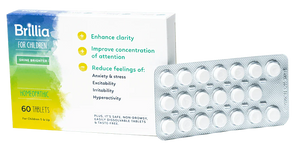From missing important deadlines to losing focus in meetings, there are many ways that ADHD can impact one’s professional life. For some, ADHD symptoms may even interfere with landing a job in the first place. Research shows that individuals with ADHD are far more likely to face difficulty obtaining and maintaining employment compared to adults without ADHD, especially if they did not receive treatment for the ADHD in childhood.1 Explore how ADHD affects daily work life, some ADHD workplace adjustments to consider, and tips improve productivity.
ADHD & Daily Work Life
According to Belynda L. Gauthier, a longtime HR professional and board president of CHADD, ADHD can have a negative influence not just on employees' productivity, but also how those employees are perceived.2 Because of executive function impairments and problems with self-regulation, some of the challenges that people with ADHD face in their daily work lives include:
- Impaired communication skills
- Distractibility
- Memory issues
- Time management issues
- Problems with interpersonal skills
- Procrastination
- Hyperactivity
- Difficulty handling complex projects
A person with ADHD may feel like they are always trying to catch up. Some individuals end up working extra hours to stay afloat, but this ends up interfering with down time, leading to burnout and anxiety.
Careers & Individuals with ADHD
One of the common misconceptions about people with ADHD is that they can never keep focus. This can be true if subject matter is uninteresting to them. However, if a person with ADHD finds something interesting, they can become so engaged with it that the world seems to fall away. This is called hyperfocus. When harnessed correctly, hyperfocus can be a tremendous asset. If a person with ADHD aligns their career with their passions, they can experience an incredible amount of productivity and satisfaction from their work. Because interests vary according to each person, working with a career counselor can help them narrow down career choices matched to their preferences.
If it’s impossible to change career paths at the moment, individuals with ADHD are encouraged to tell their HR manager or employer about their ADHD diagnosis to secure accommodations that will make the workplace more suitable. Common workplace accommodations for people with ADHD include:
- Structured breaks
- Flexibility to work from home
- Private workspace
- Written directions with emailed follow-ups
- Projects broken down into smaller units
- Operating procedure checklists
ADHD & Teamwork
From veering off-topic to having trouble meeting deadlines, there are a variety of things that can get in the way of being a successful team member if a person has ADHD. Procrastination, a common ADHD tendency, may create havoc when team members end up scrambling at the last minute. Blurting out ideas and rejecting guidance can create interpersonal conflicts. Employers and supervisors who aware of an employees’ ADHD diagnosis will help them succeed as a team member by playing to their unique strengths and interests when assigning projects, using visual reminders and/or audio recorders to help them stay on top of what happens during meetings, and setting clear goals for each team member to be held accountable. Considering workplace coaching can also be helpful in training the person with ADHD to work more constructively in group settings.
ADHD & Productivity at Work
To be productive at work, staying focused is imperative. For the employee with ADHD, constant distractions can result in mistakes and missed deadlines. This doesn’t only affect their work performance either. According to a 2015 Japanese study, employees with ADHD who experienced decreased productivity at work said their symptoms also negatively impacted their relationships, self-esteem, and regular daily activities.3 To become more productive at work, Edward Hallowell, M.D., psychiatrist and ADHD expert tells SELF magazine that workers with ADHD should start their day with something pleasurable to ease into the work day.4 Some other ways to stay productive at work include:
- Breaking large projects down into manageable tasks
- Pairing items on a to-do list with a motivational reward
- Setting aside extra time for tasks
- Adding novelty to the work day such as listening to a new album when completing tedious tasks
- Relying on an accountability partner for external motivation
ADHD & Burnout
The Mayo Clinic defines burnout as a state of physical or emotional exhaustion that may also involve a sense of reduced accomplishment and loss of personal identity.5 While it’s not an official medical diagnosis, some experts think that other conditions, such as depression, anxiety, or ADHD are behind burnout. In the case of ADHD, a cycle of overpromising and overextending typically precedes burnout. This cycle leads to a buildup of tasks and commitments and residual exhaustion from striving to live up to expectations. Overpromising and overextending may also interfere with self-care, leading the person with ADHD to neglect healthy eating, sleep, or mindful moments, all factors that are necessary for thriving. To reduce the likelihood of burnout, workers with ADHD should do the following:
- Assess priorities
- Resist the urge to say “yes” to everything
- Overestimate how long tasks should take
- Make time for rest and self-care
- Ask for help
If you feel that ADHD is interfering with your work progress, a non-prescription medication like Brillia may help. This targeted homeopathic remedy regulates the activity of the S-100B protein, which is responsible for manifesting the common symptoms associated with ADHD such as hyperactivity, lack of focus, and irritability. Brillia is not habit forming, it does not cause drowsiness, lethargy or depression, and it does not mask the personality. Unlike other ADHD medications, Brillia does not affect the appetite, nor does it cause weight loss or weight gain. There is also no “coming off” of Brillia should you decide to stop or take a break, and the medication has no contraindications with any other supplements or medications, so you can add it to the regimen without worry. Another unique factor about Brillia is that the medication relies on a holistic approach called the Five Pillars, which includes a healthy diet, adequate sleep, mindfulness techniques, and controlled screen time to help manage symptoms of ADHD for long-term success.
Find out more about how Brillia works.
Erica Garza is an author and essayist from Los Angeles. She holds an MFA from Columbia University and a certificate in Narrative Therapy. Her writing has appeared in TIME, Health, Glamour, Good Housekeeping, Women's Health, and VICE.






